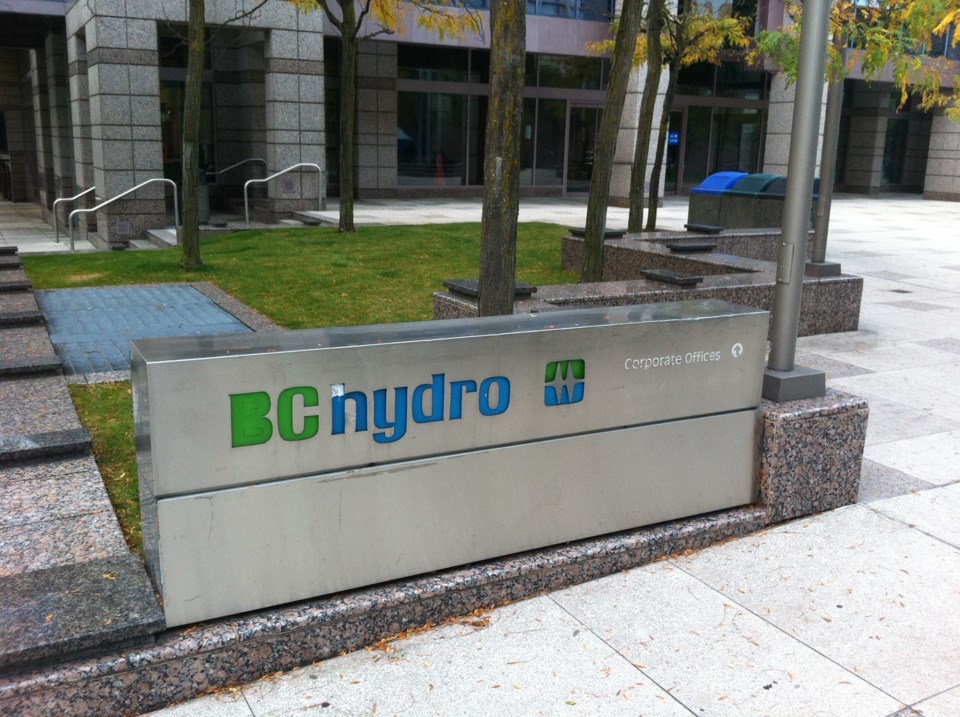 B.C. Hydro is going to be scrutinized as never before while work continues at its $10.7-billion Site C power project on the Peace River.
B.C. Hydro is going to be scrutinized as never before while work continues at its $10.7-billion Site C power project on the Peace River.
An extra level of oversight on the project itself was included when the government decided Dec. 11 to continue the work. But well before that decision, the NDP in opposition was suspicious of B.C. Hydro. Since assuming power, it has served notice it also wants some reviews of B.C. Hydro’s general operation.
Independent of those, B.C. auditor general Carol Bellringer has a new item on her to-do list. The office is taking over for the first time the job of doing a full-scale direct financial audit of the Crown corporation. The annual task is usually done by a private firm contracted by B.C. Hydro. The auditor general has done performance audits of specific B.C. Hydro functions in the past, but never taken responsibility for the annual direct financial audit.
Bellringer won approval from the legislature finance committee last month for a boost to her budget to gear up next year to take over responsibility for the audit, and then start it the year after.
That means $240,000 in extra costs in the next fiscal year and $375,000 the year after. The budget for the new audit was originally about $800,000, but was revised during the committee appearances.
The upcoming audit will likely include considerable attention to one controversial aspect of Hydro’s bookkeeping — the practice of using deferral accounts to push large amounts of debt off the current books and into the future. It has been a sore point for several years. The argument over the practice reached the point last year when the auditor general qualified her approval of the B.C. government’s overall books because of the “inappropriate use of rate-regulated accounting” at B.C. Hydro.
As of last year, Hydro had more than $5 billion worth of deferred expenses in its $20 billion worth of net long-term debt.
The practice is allowed under some accounting standards if an independent third-party regulator approves it. But the former B.C. Liberal government specifically exempted Hydro from needing B.C. Utilities Commission approval to defer such costs. It also issued a number of directions to the BCUC that further voided the independence.
Those moves were what prompted the auditor general last summer to qualify her approval of the state of the B.C. government’s books. It was because the government financial statements are supposed to meet a certain standard, but the Hydro component within those statements does not.
Bellringer also appeared at a different legislature committee last year, the public accounts committee, to get approval for the project.
She said then: “We would like to be closer to what’s going on at Hydro. … We’ll be forming an opinion as to whether or not those statements were prepared the way they should have been.”
She also told MLAs the reasons her office decided to take on the job “have a lot to do with the qualifications that we had in the audit opinion. ”
Although a lot of work already goes into the current independent audit by the private firm, the only public representation is a bland page on B.C. Hydro’s annual report that amounts to: “Looks OK by us.”
The auditor general goes into the job with a track record of vigorously objecting to the way the deferral accounts are handled, by government and Hydro alike. The office has a lot more clout than a contracted consulting firm, and isn’t shy about exercising it.
The audit is still a year or more away, but Bellringer’s office is warming up for it with a separate performance audit of the deferral accounts, which is nearing completion.
The office’s first look at those, seven years ago when they were less than half the current size, is what started the whole argument.
Just for good measure, the auditor general’s office is also conducting a performance audit of the oversight of the BCUC, not unrelated to the Hydro issues.
It also started an audit of Site C but suspended it when the new government referred the project to the BCUC. It’s now maintaining a “watching brief” on the project.
If B.C. Hydro were a TV series, it would be the most-watched show on the tube.



